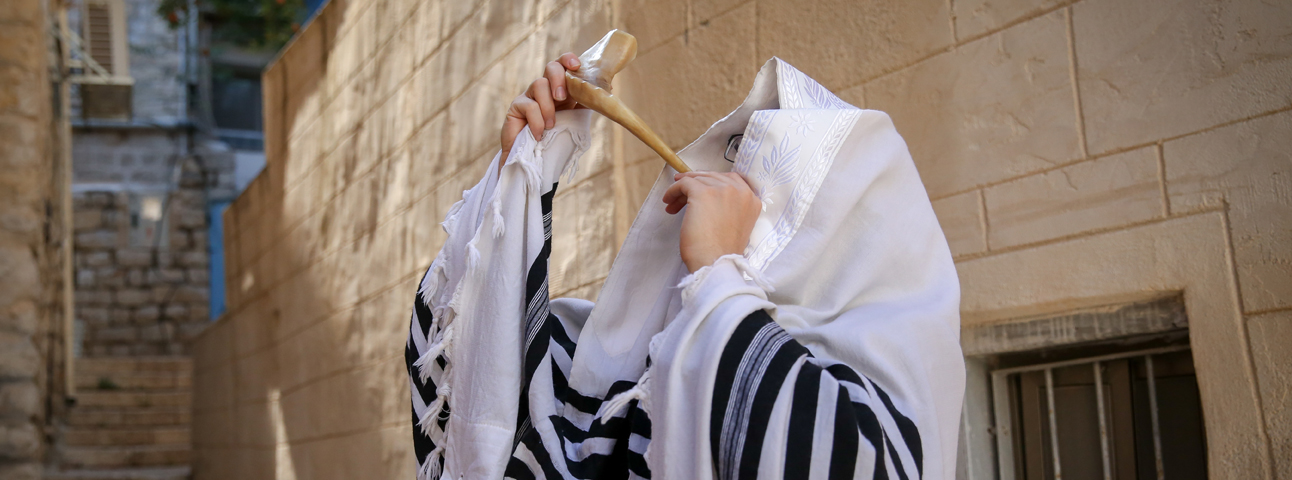On This Day the World Stands on Trial
Do we really believe that our fate for the coming year is determined on this day?

Illustration | Flash 90
On this day, the world was created. On this day, all creatures of the universe stand before God for his judgment” (Rosh Hashanah prayer).
These are two of the most powerful verses in the Ashkenazi version of the Rosh Hashanah liturgy. According to Jewish tradition, the two days of the Jewish New Year are the days on which the destiny of every human being (Jewish or not), and perhaps that of the entire universe, are determined for the coming year. These verses are at the heart of our overall experience of the High Holy Days, from the blowing of the shofar on the morning of the first day of Rosh Hashanah to the final shofar blast that concludes the fast of Yom Kippur, the Day of Atonement.
Is this experience an authentic one? Do we really feel that our fate for the coming year is determined on these specific days? Of course, the answer depends upon how much we believe in the concept of God and whether He watches over us. Today, it is hard for us to believe in this idea. The story that we understood in kindergarten – about an old man who sits up in Heaven, and listens to our prayers – sounds more childish the older we become. And anyway, who can believe in God’s providence after the Holocaust?
Let’s be clear: What the Holocaust did was to put the question of why evil exists in the world into sharper relief – especially when it is arbitrary and strikes indiscriminately at people, including those whom we see as the best or most innocent: babies who die in infancy, small children killed in road accidents or terrorist attacks, and the dozens or even hundreds of children, elderly people, women and men who perish in natural disasters. The Holocaust is, in a manner of speaking, “only” the worst manifestation of this cruel and arbitrary evil.
If this is the case, why do so many people, including those who do not see themselves at all as “religious” or believing in God, still attend synagogue on the High Holy Days? The narrative they learned in kindergarten is not what brings them there. Rather, that narrative is an allegory of the existential feeling lying in the hearts of every one of us: the feeling that the most significant thing in our lives is fate, the very thing that we cannot control.
FATE CAN bring awful things, such as severe illness, road accidents, and severe disability upon us and our loved ones. It can also bring with it wonderful things, such as deep love, sweet and adorable children, rich intellectual and spiritual experiences, winning the lottery, work we love and friends who love us.
So God isn’t an old man who sits in Heaven. The Jewish philosopher Maimonides wrote that nothing definitive can be said about God, since He is so sublime that we have no idea who or what He is, let alone can we describe Him. According to this approach, which sounds very logical, it is also impossible to say that God “watches over” the world since this too is a human quality that does not suit him at all.
God then, is a code word – the term that humanity has chosen to describe everything in our lives that is unknown: fate that emerges from the infinite universe and shapes our lives for good or bad. There is no one who hasn’t often felt the experience of standing before this fate that they cannot control. The same is true of prayer whether we recite it in the traditional form or as a personal petition coming from the heart, particularly in times of trouble when we plead that our unknown fate will bring with it good and not, heaven forbid, bad news.
This is at the heart of the religious experience that we all share regardless of whether we define ourselves as religious, secular, atheist or agnostic. While various cultures have shaped this experience in different ways, at its core it is the same for all of us, a universal human feeling. It is also the essence of the prayer recited on the High Holy Days: “May this be a time of mercy and favor before You.”
May fate be kind to all of us this year. Shana tova and Gmar hatima tova – May all be inscribed in the book of life – all of us, all the House of Israel and all mankind.
The article was published in the Jerusalem Post.
